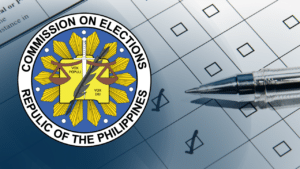PRESIDENT Duterte’s first State of the Nation Address (Sona) sweetens medium-term prospects for the Philippines by tackling chronic problems using fresh insights, mostly drawn from his Davao “doctrine” of local government management, a Citigroup economist said.
In a research note dated July 25, Citi Philippines economist Jun Trinidad said Mr. Duterte’s first Sona—ambitious in scope—aimed to accelerate growth and development within his term by opening up and creating new thresholds for growth such as through an infrastructure spending pledge, while boldly pushing for the amendment of the 1987 Constitution.
“Through these amendments, festering structural issues would, it is hoped, reach just political settlements that yield much sought-after stability in conflicted regions, attract much-needed business and investment and spawn more ‘Metro Manilas’ with the offer of better jobs and incomes,” Trinidad said.
While Mr. Duterte’s Sona was neutral for the market for now since much of what was said had already been broadly reported, Trinidad said “the medium-term outlook beckons favorably as his Sona provides the strong framework and guidance needed in testing/seeking new approaches to fixing familiar problems.”
In opening the 17th Congress, Trinidad noted that the Sona had echoed familiar themes that the new President intended to address within his fixed six-year term, among these a relentless war against crime and illegal drug menace; end the NDF/CPP (National Democratic Front/Communist Party of the Philippines) rebellion starting with a declaration of a unilateral ceasefire with the rebels, and formalizing the peace pact with Muslim insurgents; shift to federalism and thus address regional aspirations for autonomy; streamline government processes to improve competitiveness and reduce bureaucratic corruption; pursue key infrastructure projects, particularly railways in North-South Luzon (including fixing the Metro Manila railway system) to boost growth and employment; fix the Metro Manila traffic problem by asking Congress for emergency powers; seek a peaceful resolution to the maritime dispute with China after the international arbitration tribunal’s ruling; address restrictions on the economy such as foreign ownership limits that deter faster growth and investment; through the newly formed Department of Information, Communication and Technology (DICT), develop a national broadband plan to improve internet speed and access; respect for laws on the environment and ancestral domain, and vigorous implementation of the reproductive health law, which guarantees universal access to maternal health care, family planning.
Trinidad noted that the Sona was a broader version of the 10-point agenda that outlined Mr. Duterte’s economic priorities. Equally important, he stressed, was his pledge that his administration, particularly the Cabinet and other appointed/handpicked executives, would not be tainted by corruption.




